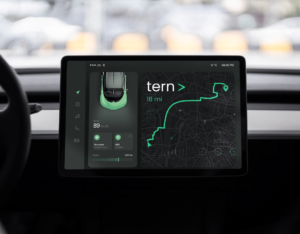Sophie Alcorn, attorney, author and founder of Alcorn Immigration Law in Silicon Valley, California, is an award-winning Certified Specialist Attorney in Immigration and Nationality Law by the State Bar Board of Legal Specialization. Sophie is passionate about transcending borders, expanding opportunity, and connecting the world by practicing compassionate, visionary, and expert immigration law. Connect with Sophie on LinkedIn and Twitter.
TechCrunch+ members receive access to weekly “Ask Sophie” columns
Use promo code ALCORN to purchase a one- or two-year subscription for 50% off.
Dear Sophie,
I’m a citizen of India. I will graduate from a U.S. master’s degree program in the spring. I’m interested in working in space technology and will be applying for jobs in that field while I’m on OPT. I’ve heard that most space tech companies are reluctant to hire individuals on F-1 student visas due to export rules and other compliance issues. How can I one day pursue my dreams?
Sincerely,
Space Savvy
Dear Space,
You’re referring to the complicated topic of export control laws. Working in space tech can be tricky for an immigrant on OPT, H-1B or an O-1A. Listen to my chat with Bailey Reichelt, a regulatory and corporate attorney who focuses on this topic as it relates to the commercial space industry and tech startups. During our conversation, she explained export control laws and what companies, founders, and talent need to keep in mind when working on technology or sharing information.
For many, the answer is getting a green card, but the starting point is often an H-1B through the lottery. For the latest on this year’s annual H-1B lottery, register for my live, free educational webinar covering all you need to know on H-1Bs in 2024.
As we dive in to the work of commercial space technology and startups, it’s important to start with an overview of some of the basics, including EAR (Export Administration Regulations) and ITAR (International Traffic in Arms Regulations) and why these regulations make it difficult for space tech companies to hire individuals on student or even work visas.
A primer on export controls
According to Reichelt, the United States has two primary export control laws that govern how certain technology, software, technical data, and other materials are physically or electronically exported or shared with foreign countries and even foreign-born individuals living and working in the U.S. on a student or work visa. They are aimed at protecting U.S. national security, foreign policy, and economic interests:
- EAR (Export Administration Regulations) – regulate the export of commercial and dual-use items, meaning items that have both civilian and military applications. These items are listed on the Commerce Control List, and any individuals or companies exporting them must obtain a license from the U.S. Department of Commerce.
- ITAR (International Traffic in Arms Regulations) – regulate the export of defense articles and services. These items are listed on the U.S. Munitions List, and any individuals or companies exporting them must obtain a license from the U.S. Department of State.
It’s important to note that the export control laws also apply to the transfer of technology or information to foreign countries or individuals. This can include email correspondence, providing access to software or databases, or even giving presentations at conferences or workshops.
For individuals on an F-1 student visa, this means that they must obtain a license before they can work on any projects or research related to EAR- or ITAR-controlled items. And for individuals on an H-1B or O-1A visa, their employer must obtain an appropriate license before they can work on any such projects or research.








